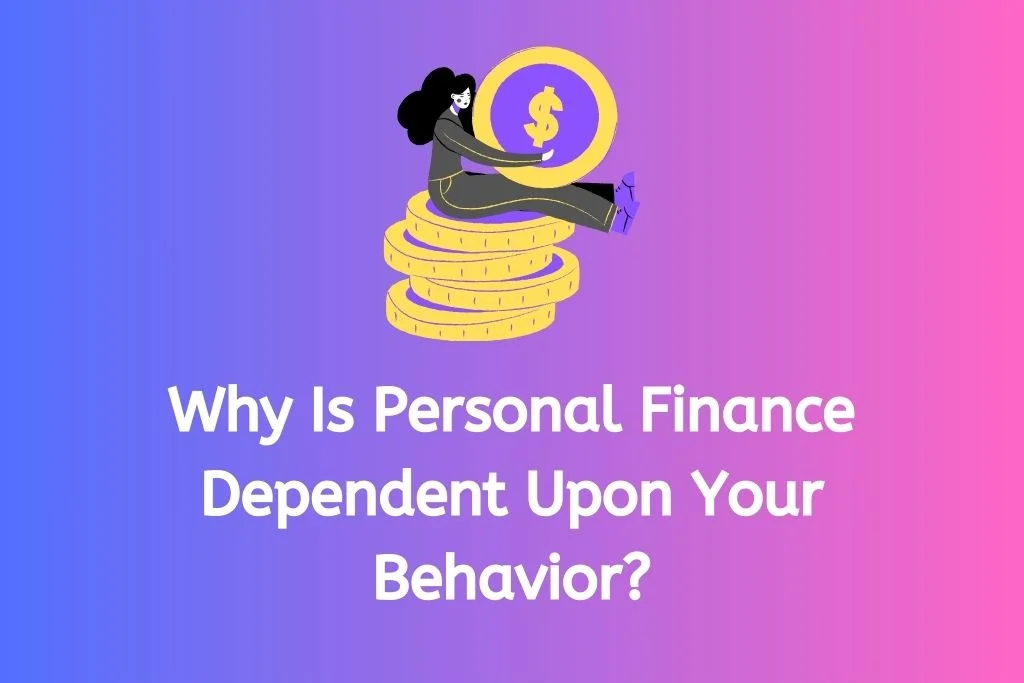Personal finance is not just about numbers; it’s deeply intertwined with your decisions, habits, and emotions. While income, expenses, and investments are crucial, the way you manage them is largely driven by your behavior. Understanding why is personal finance dependent upon your behavior is essential to achieving financial stability and success.
In this article, we explore how behavioral patterns influence financial outcomes and offer actionable tips to foster positive habits for better financial management.
Table: Why Is Personal Finance Dependent Upon Your Behavior?
| Behavioral Factor | Impact on Personal Finance | Example |
|---|---|---|
| Spending Habits | Determines whether you save or overspend, affecting your financial stability. | Impulse buying versus budgeting for necessities. |
| Saving Discipline | Ensures long-term financial security and readiness for emergencies. | Consistently saving 20% of income versus sporadic saving. |
| Debt Management | Influences your credit score and ability to achieve financial goals. | Paying credit card bills on time versus accumulating debt. |
| Emotional Spending | Leads to unplanned expenses that disrupt budgets and savings plans. | Buying expensive items to cope with stress. |
| Investment Decisions | Determines the growth of your wealth over time. | Investing in diversified portfolios versus risky ventures. |
| Goal Setting | Provides direction and motivation for financial planning. | Setting clear goals like buying a home versus vague aspirations. |
| Risk Tolerance | Affects how you approach financial opportunities and challenges. | Avoiding investments out of fear versus calculated risks. |
Why Personal Finance Depends on Behavior
1. Spending Habits: The Foundation of Financial Success
Your spending habits dictate how much money you save or invest. Poor spending habits, such as impulsive buying or failing to track expenses, can lead to financial instability.
- Example: Someone who frequently indulges in luxury items without a budget may struggle to save for future needs.
- Solution: Implement a budget using tools like the 50/30/20 rule (50% needs, 30% wants, 20% savings).
2. Saving Discipline: Building a Financial Safety Net
Consistent saving is critical for achieving financial goals and managing emergencies. However, the discipline to save regularly depends on your behavior and priorities.
- Example: An individual who automatically transfers a portion of their income to a savings account is more likely to build wealth than someone who saves sporadically.
- Solution: Automate your savings to ensure consistency and avoid the temptation to spend.
3. Debt Management: A Reflection of Financial Responsibility
How you handle debt significantly impacts your financial health. Behavioral factors such as procrastination or over-reliance on credit cards can lead to mounting debt.
- Example: Making minimum payments on a credit card rather than paying off the full balance leads to high-interest charges and long-term debt.
- Solution: Pay more than the minimum due, and prioritize high-interest debt first (debt avalanche method).
4. Emotional Spending: A Common Pitfall
Emotions often influence spending decisions, leading to purchases that may not align with your financial goals. Emotional spending is a major reason why budgeting fails for many people.
- Example: Buying expensive gadgets or dining out frequently to relieve stress can derail savings plans.
- Solution: Identify emotional triggers and adopt healthier coping mechanisms, such as exercising or journaling.
5. Investment Decisions: The Key to Wealth Growth
Investment behavior, including risk tolerance and decision-making, affects your ability to grow wealth. Fear-based or impulsive investment decisions can hinder long-term financial success.
- Example: Avoiding investments altogether due to fear of loss results in missed opportunities for compounding returns.
- Solution: Educate yourself on investment basics and diversify your portfolio to manage risk effectively.
6. Goal Setting: Clarity and Motivation
Clear financial goals provide direction and motivation, but achieving them depends on your commitment and behavior. Without defined goals, it’s easy to lose focus and overspend.
- Example: A person saving specifically for a down payment on a home is more disciplined than someone saving without a purpose.
7. Risk Tolerance: Balancing Fear and Opportunity
Your willingness to take calculated risks influences your financial growth. Being overly cautious or reckless can both lead to suboptimal outcomes.
- Example: Avoiding investment in stocks due to fear of loss limits growth potential compared to someone who balances risks with rewards.
- Solution: Assess your risk tolerance and work with a financial advisor to create a balanced strategy.
The Psychology Behind Personal Finance Behavior
1. Behavioral Biases
- Loss Aversion: Fear of losing money can prevent you from making necessary investments.
- Overconfidence: Assuming you can manage debt without planning leads to poor decisions.
2. Cognitive Load
Managing multiple financial tasks without organization can lead to decision fatigue, resulting in overspending or neglecting important savings.
Actionable Tips for Better Financial Behavior
- Set Automatic Transfers: Automate savings and bill payments to avoid late fees and build wealth effortlessly.
- Adopt the Envelope Method: Allocate cash for specific expenses to prevent overspending.
- Educate Yourself: Read books or take courses on personal finance to make informed decisions.
- Reward Progress: Celebrate small milestones to stay motivated in achieving financial goals.
Conclusion
Personal finance is heavily dependent on your behavior because it shapes how you manage money, set goals, and make decisions. By recognizing behavioral patterns and implementing disciplined habits, you can take control of your financial future. Whether it’s curbing emotional spending, managing debt effectively, or investing wisely, your behavior is the cornerstone of financial success.

